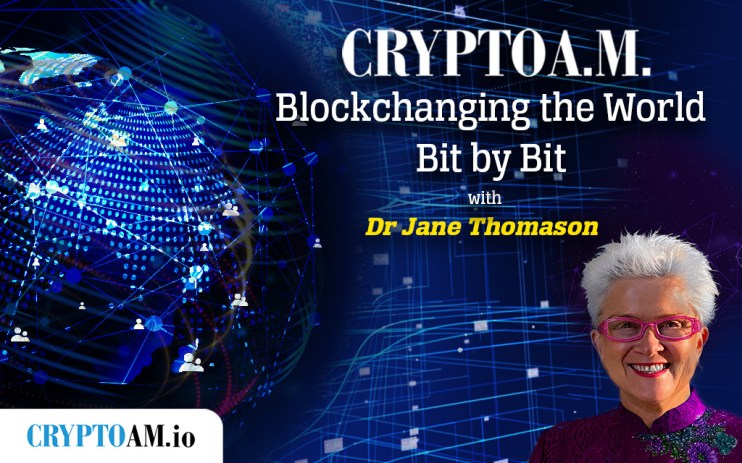Ancient culture leapfrogging to first nation people’s self-sovereign identity

In an obscure office in Northern Australia, a group of first nations people have been quietly working to use blockchain technology to create a secure, self-sovereign digital identity for its people.
Recognised by the High Court of Australia as the original landowners, the Yidindji have long been seeking a way to preserve their identity and rights. The Yidindji people are the original inhabitants of far north Queensland between Cairns and Innisfail. The Yidindji people have existed for more than sixty thousand years.
Last week, they launched a Central Bank Digital Currency (CBDC). Forkast.news reported on the launch in partnership with Korean Tech Company MetaMui. The story highlights the fact that the wallet is built to be regulated and that the underlying MetaMUI SSID app is a self-sovereign identity portal and wallet for multiple digital assets, including digital fiat currency, digital arts, digital stocks, gold certificates, real estate certificates, etc.
The MetaMui Sovereign Wallet Network plans to introduce a non-fungible token (NFT) carbon offset marketplace and already has a presence in six countries, which now includes Australia.
“The ‘MetaMUI SSID’ allows anyone and any organisation to create their digital identities on the internet, own digital assets and perform true peer-to -peer transactions,” said Phantom Seokgu Yun, MetaMUI CEO.
“It has been an incredible journey to work with the Yidindji government to introduce MetaMUI’s innovative technologies.”
That the Yidindji have launched a CBDC is in itself remarkable, but there is so much more to this story, and it marks an important moment for first nations people globally.
There are 370 million Indigenous people in more than 90 countries, representing about five per cent of the world’s population.
Many first nations people have similar sentiments regarding their own sovereignty, and may well be interested in connecting to the SSID network. Digital Asset Regulation Expert, Loretta Joseph, said: “Now it is possible for ancient cultures to hold sovereign identity, to connect and create an economic system that values the rights and identity of indigenous people globally and allows them to exchange value.”
Jamie Burke of Outlier Ventures in a watershed whitepaper on Community Token Economies made the point that anyone, anywhere can now issue a unique and cryptographically secure digital token to underpin value within the protocol or application layer of a new financial system.
This token financialises value directly and allows for liquid secondary markets of exchange. This value can be fractionalised to allow any level of participation down to the smallest of micro-transactions. In principle anyone, anywhere, can participate in these new digital economies before, during, or after they have been created; allowing all parties to have a stake in their success through a form of decentralised ownership.
Others have also been exploring this concept for indigenous people. In Canada, work is being undertaken for the collection, ownership, and application of data related to Indigenous people.
The University of British Columbia is developing a sovereign data resource management platform for first nation communities. Indigen is working to preserve the heritage of indigenous cultures by creating an immutable storage of indigenous historical data on the blockchain; to encourage people to donate their historical documentation for permanent record keeping on the blockchain; to create indices which are easily accessible to be studied and used as reference points for students and researchers; to promote constructive relationships between local governments and indigenous communities through a decentralised alternative to the current system of record keeping; and to settle disputes over land ownership.
Others are exploring deploying blockchain to improve business efficiencies and payment of oil and gas royalties.
Chief Minister Gudju-Gudju Gimuybara said: “This is the first step in creating an ecosystem for our people to relate as the original custodians of the land, with the Commonwealth of Australia, with other first nations people around the world and with the global economy.
“This is a great day for our nation and citizens, we are making history with every step.”
Blockchain has enabled the creation of an SSID, the launch of a CBDC, and this will provide a platform for the Yidindji people to record their natural capital, measure and trade carbon credits and engage economically with others on the SSID network.
Foreign Minister, Murrumu of Walubara, commented: “Over the last six months, Yidindji and MetaMUI have successfully built the first Self-Sovereign Identity-based national identity system for indigenous peoples and digitised all government services, a world first!
“This will enable us to connect with first nations peoples globally and we plan to build an identity-based payment network that enables the Yidinji nation to perform digital transactions using their own Yidindji digital assets without sacrificing privacy. Digital is the future for our people and we want to be at the forefront.”
Imagine if blockchain connected the 370 million indigenous people globally and allowed an SSID to connect economically and build a global indigenous token economy. That would be newsworthy!